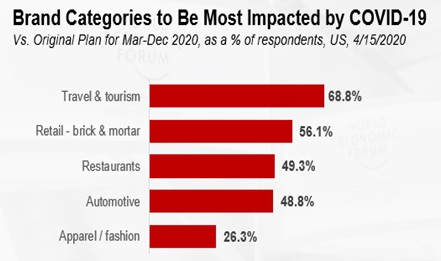Effects of Religious Factors between Consumer Empowerment and Social Interactions - A Review
DOI:
https://doi.org/10.54741/mjar.3.2.3Keywords:
interaction, social, empowerment, consumersAbstract
This essay explores how Brand Promotion Management has changed in the wake of the COVID-19 outbreak. The Covid attack has had a significant impact on the world markets. People now prioritise having a wise and healthy lifestyle because of the pandemic's increased health consciousness. They are using the Brands' confidence. Marketers found it more challenging to draw customers and establish a strong brand image in their target audience's minds as a result of the intense competition that existed during the pandemic. They have made a platform choice that will allow them to expand their network of potential brand ambassadors. It is more crucial to bring in new clients than to keep old ones, and whether or not a client finds a company's services and goods comfortable depends on their level of trust with them. Marketing professionals have altered their promotional strategies and tactics as a result of a better understanding of the customer's mindset. They now use a variety of techniques to increase brand awareness among the general public, including point-of-sale promotions, social media campaigns, organising content, customer referral incentive programmes, promotional gifts, and many others. With an emphasis on customer appealing approaches and customer satisfaction levels, the current study concentrates on the numerous brand promotion efforts to maintain in the competitive market following the pandemic.
Downloads
References
Alaimo, L. S., Fiore, M., & Galati, A. (2020). How the covid-19 pandemic is changing online food shopping human behaviour in Italy. Sustainability, 12(22), 1-18.
Azad, N., Azizi, B., Asgari, H., & Bagheri, H. (2013). A study on important factors influencing customers’ impulsive buying behavior: A case study of Shahrvand food chain. Management Science Letters, 3(2013), 1415–1420.
Bird, A., & Stevens, M. J. (2003). Toward an emergent global culture and the effects of globalization on obsolescing national cultures. Journal of International Management, 9(2003), 395-407.
Bryman, A. (2007). Barriers to integrating quantitative and qualitative research. Journal of Mixed Methods Research, 8(1), 8-22
Doody, O., Taggart, L., & Slevin, E. (2013, March). Focus group interviews part 3: Analysis. British Journal of Nursing, 22(5), 266-9.
Doyle, L., Brady, A.-M., & Byrne, G. (2009). An overview of mixed method research. Journal of Research in Nursing, 14(2), 175–185.
Frączek, B., & Klimontowicz, M. (2015). Financial literacy and its influence on young customers’ decision factors. Journal of Innovation Management, 3(1), 62-84.
Ghazali, I., Abdul-Rashid, S. H., Dawal, S. Z., Aoyama, H., Tontowi, A. E., & Sakundarini, N. (2017). Cultural Influences on Choosing Green Products: An Empirical Study in MALAYSIA. Sustainable Development, 25(6), 655-670.
Kaushik, V., & Walsh, C. A. (2019). Pragmatism as a research paradigm and its implications for social work research. Social Sciences, 8(9), 3-17.
Zhao, Y., & Bacao, F. (2021). How does the pandemic facilitate mobile payment? An investigation on users’ perspective under the covid-19 pandemic. Int. J. Environ. Res. Public Health, 18(3), 1-22.

Downloads
Published
How to Cite
Issue
Section
License
Copyright (c) 2023 Dr. Swati Mahapatra

This work is licensed under a Creative Commons Attribution 4.0 International License.
Research Articles in 'Management Journal for Advanced Research' are Open Access articles published under the Creative Commons CC BY License Creative Commons Attribution 4.0 International License http://creativecommons.org/licenses/by/4.0/. This license allows you to share – copy and redistribute the material in any medium or format. Adapt – remix, transform, and build upon the material for any purpose, even commercially.









